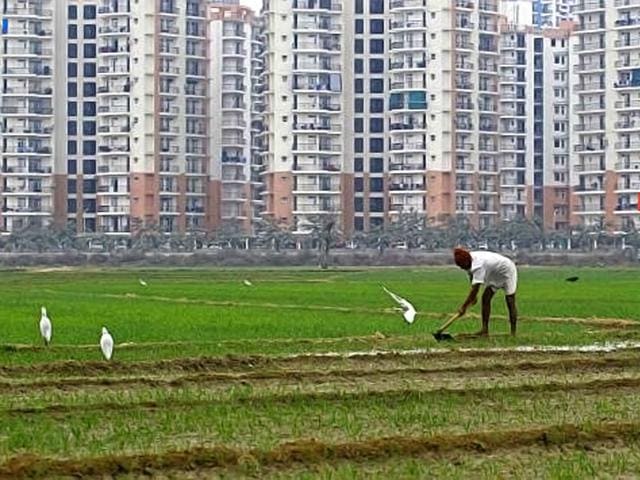Modi govt's misses land-rights opportunity
Conflicts over land are prevalent in India, with both landowners and potential investors facing difficulties. This is primarily because India lacks a functioning land market.
Conflicts over land are prevalent in India, with both landowners and potential investors facing difficulties. This is primarily because India lacks a functioning land market.

Poor land records, high transaction costs, and rigid land use and zoning regulations mean that the demand for land is much greater than the supply. As a result, land and real estate transactions have become synonymous with corruption.
After taking office in 2014, Prime Minister Narendra Modi put forward amendments to the land acquisition law claiming to make the bill more business-friendly.
The proposed amendments would free the government from meeting onerous consent requirements and conducting a social impact assessment when it acquired land for infrastructure and industrial projects. But Modi has struggled to get the amendments passed by both houses of parliament.
The government argues that it is necessary to acquire land to promote investment, employment, and economic growth. But a functioning land market could put to good use the significant capital assets that are outside the market by reducing conflict associated with land acquisition, thus encouraging investment.
This would also lay the foundation for a high-growth economy by increasing employment and reducing the need to acquire land for productive enterprises.
The government has a dismal employment-generation record and has struggled to adequately rehabilitate and resettle those displaced when it has acquired land for big projects. This has made the public skeptical of any attempts to expand the scope of land acquisition.
A key bone of contention has been the high level of consent that land buyers must secure from sellers, who are often farmers. But surveys suggest 40% of farmers would like to stop farming, while approximately 60% of them do not want their children to take up agriculture as a vocation.
This implies that consent is a surmountable hurdle and that large amounts of land currently under agriculture could be available for public infrastructure and other nonagricultural purposes. But the lack of a land market has meant that there has been little progress in this area.
Land problems affect rich and poor, industrialists and agriculturists alike. Yet, this issue is low-hanging fruit that the Modi government has refused to pluck.
The new leadership has expressed its support for a decentralised and devolved governance structure; land is an area in which that rhetoric can become action. Transferring jurisdiction over land to the local councils would not only strengthen these institutions but also greatly reduce conflict over land acquisition.
(Barun S Mitra is a commentator on current affairs on a range of issues. His articles have appeared in Indian and international publications. He is the director of Liberty Institute, an independent think tank based in Delhi.)
Get Current Updates on India News, Lok Sabha Election 2024 live, Infosys Q4 Results Live, Elections 2024, Election 2024 Date along with Latest News and Top Headlines from India and around the world.



